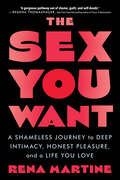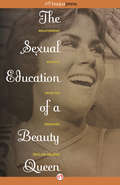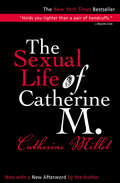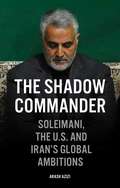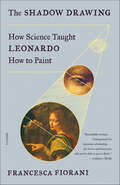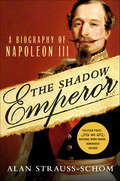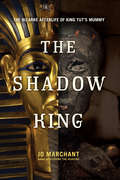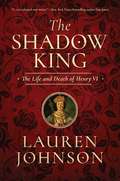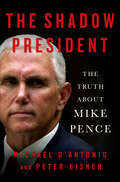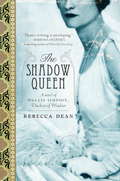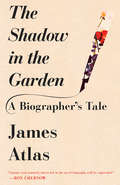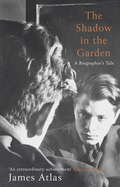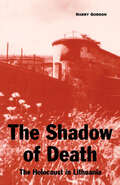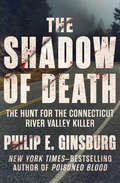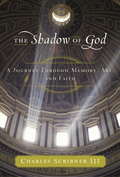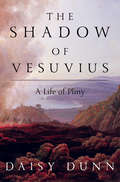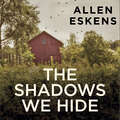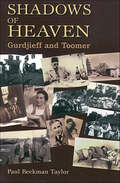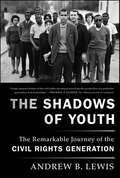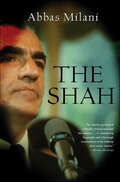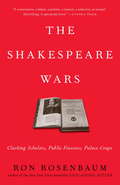- Table View
- List View
The Sex You Want: A Shameless Journey to Deep Intimacy, Honest Pleasure, and a Life You Love
by Rena MartineYou Deserve Great SexWhen it comes to relationships, our society has plenty of expectations. We're supposed to know how to speak up for ourselves in bed, be caring partners, and, of course, love ourselves first. But no one tells us how to actually do all those things, and we are left feeling unsatisfied, confused, and ashamed when we don't measure up.Former Deputy District Attorney Rena Martine was in that position. After rejecting the ideal white-picket fence life, she embarked on a journey to redefine intimacy in a way that felt true. In the years that followed, Rena defied all of society's sexual norms, built a presence as a global women's intimacy coach, and created the intimate life she craved.Now she brings those experiences to you! With no-holds-barred honesty, stories from real-life women, and sparkling humor, THE SEX YOU WANT will help you:Build a secure relationship with your most important partner—YOURSELFGet in touch with YOUR expectations for relationships so you can date more intentionallyDemystify lifestyle practices outside of the heterosexual-monogamous-vanilla box with frank discussions of female sexual fluidity, kink, and ethical non-monogamyFind apps, products, and communities to satisfy any curiosityBring deep intimacy and exciting variety into your bedroom and beyondWhen it comes to intimacy, vulnerability, and connection, you'll find that no two women are alike. THE SEX YOU WANT replaces cookie-cutter advice with powerful self-discovery tools to help you make friends with your own confidence and curiosity, build rock-solid relationships, and embrace what YOU love!
The Sexual Education of a Beauty Queen
by Taylor MarshThe Sexual Education of a Beauty Queen is at once memoir, commentary, enlightenment, and a little dose of self-help. Taylor Marsh was Miss Missouri and performed on Broadway, hosted a radio show, and starred in a one-woman show. She was also a relationship consultant for the nation's largest newsweekly, edited the web's first megasuccessful women-owned and -operated soft-core pornography site, worked as a phone-sex actress, and studied sexuality and relationships for years. She's been single, a girlfriend, a mistress, and a wife. She has the inside track to what men want, what women need, and how we all tend to muck it up. As a political commentator and popular writer, Taylor is intelligent and inspiring. She blends personal experience, pop culture, and the politics of sex in an entertaining, engaging, and inspiring read.
The Sexual Life of Catherine M. (Books That Changed the World)
by Catherine MilletThis New York Times–bestselling memoir of one woman&’s erotic escapades is &“brilliantly literate, utterly unabashed [and] consistently provocative&” (The Philadelphia Inquirer). Since it was first published in France, The Sexual Life of Catherine M. has become a global literary phenomenon, hailed as one of the most important books on sexuality to be published in decades. Catherine Millet, the eminent editor of Art Press, has always led a free and active sexual life—from alfresco encounters in Italy to a gang bang on the edge of the Bois du Boulogne to a high-class orgy at a chichi Parisian restaurant. She has taken pleasure in the indistinct darkness of a peep show booth and under the probing light of a movie camera at an orgy. And in The Sexual Life of Catherine M., she recounts it all, from tender interludes with a lover to situations where her partners were so numerous and simultaneous they became indistinguishable parts of a collective body. A graphic account of physical gratification and a relentlessly honest look at the consequences—both good and bad—of sex stripped of sentiment, The Sexual Life of Catherine M. is &“truly a masterpiece of sexual exploration [that] will be a classic&” (The Hartford Courant).
The Shadow Commander: Soleimani, the US, and Iran's Global Ambitions
by Arash AziziWhen the US assassinated Qassem Soleimani in January 2020, he was one of the most powerful men in Iran. The military spearhead for Iranian foreign policy, he enacted the wishes of the country&’s Supreme Leader, establishing the Islamic Republic as a major force in the Middle East. He masterminded interventions in Afghanistan, Iraq, Lebanon, Syria and Yemen, supporting Iran&’s allies and campaigning against the Taliban, US forces, Israel and ISIS. But all this was a long way from where he began – on the margins of a country whose ruler was regarded as a friend of the West. In this gripping account, Arash Azizi examines Soleimani&’s life, regional influence and future ambitions. He breaks new ground through interviews with Iranians, Afghans, Iraqis and Syrians who knew Soleimani for years, including his personal driver, the aides who accompanied him to his Moscow meeting with Vladimir Putin, and his brother. Through Soleimani, Azizi reveals the true nature of Iran&’s global ambitions, providing a rare insight into a country whose actions are much talked about but seldom understood.
The Shadow Drawing: How Science Taught Leonardo How to Paint
by Francesca Fiorani“Insightful and beautiful. . . . A wonderful study of how Leonardo’s art and science are interwoven.” —Walter Isaacson, author of Leonardo Da VinciA New York Times Book Review Editors’ ChoiceShortly after Leonardo da Vinci’s death, his peers and rivals created the myth of the two Leonardos: there was Leonardo the artist and then, later in life, Leonardo the scientist. In this pathbreaking biographical interpretation, the art historian Francesca Fiorani tells a very different and much more interesting story.Taking a fresh look at Leonardo’s celebrated but challenging notebooks and other sources, Fiorani shows that Leonardo became fluent in science when he was still young man. As an apprentice in a Florence studio, he was especially interested in the science of optics. He aspired to use this knowledge to capture—as no artist before him had ever done—the interior lives of his subjects, to paint the human soul in its smallest, tenderest motions and vicissitudes. And then he hoped to take one further step: to gather his scientific knowledge together in a book that would be even more important than his paintings. In The Shadow Drawing, Fiorani revises our understanding of Leonardo the artist’s most renowned paintings and reconstructs the wisdom Leonardo the author hoped to impart. The result is both a stirring biography and a bold reconsideration of how the Renaissance understood science and art—and of what was lost when the two were sundered.“Fiorani’s lively intellectual adventure gives us new understanding and appreciation of Leonardo’s cross-fertilization of art and science. It is a perceptive biography of Leonardo exploring the frontiers of science but also a brilliantly informative guide to his paintings.” —Ross King, author of Brunelleschi’s Dome, Leonardo and the Last Supper, and Mad Enchantment
The Shadow Emperor: A Biography of Napoleon III
by Alan Strauss-SchomA &“boldly revisionist biography&” of the controversial, polarizing nineteenth-century French emperor, Louis-Napoleon III (The Wall Street Journal). Considered one of the pre-eminent Napoleon Bonaparte experts, Pulitzer Prize-nominated historian Alan Strauss-Schom has turned his sights on another in that dynasty, Napoleon III (Louis-Napoleon) overshadowed for too long by his more romanticized forebear. In the first full biography of Napoleon III by an American historian, Strauss-Schom uses his years of primary source research to explore the major cultural, sociological, economical, financial, international, and militaristic long-lasting effects of France&’s most polarizing emperor. Louis-Napoleon&’s achievements have been mixed and confusing, even to historians. He completely revolutionized the infrastructure of the state and the economy, but at the price of financial scandals of imperial proportions. In an age when &“colonialism&” was expanding, Louis-Napoleon&’s colonial designs were both praised by the emperor&’s party and the French military and resisted by the socialists. He expanded the nation&’s railways to match those of England; created major new transoceanic steamship lines and a new modern navy; introduced a whole new banking sector supported by seemingly unlimited venture capital, while also empowering powerful new state and private banks; and completely rebuilt the heart of Paris, street by street. Napoleon III wanted to surpass the legacy of his famous uncle, Napoleon I. In The Shadow Emperor, Alan Strauss-Schom sets the record straight on Napoleon III&’s legacy.
The Shadow King: The Bizarre Afterlife of King Tut's Mummy
by Jo MarchantMore than 3,000 years ago, King Tutankhamun's desiccated body was lovingly wrapped and sent into the future as an immortal god. After resting undisturbed for more than three millennia, King Tut's mummy was suddenly awakened in 1922. Archaeologist Howard Carter had discovered the boy-king's tomb, and the soon-to-be famous mummy's story--even more dramatic than King Tut's life--began.The mummy's "afterlife" is a modern story, not an ancient one. Award-winning science writer Jo Marchant traces the mummy's story from its first brutal autopsy in 1925 to the most recent arguments over its DNA. From the glamorous treasure hunts of the 1920s to today's high-tech scans in volatile modern Egypt, Marchant introduces us to the brilliant and sometimes flawed people who have devoted their lives to revealing the mummy's secrets, unravels the truth behind the hyped-up TV documentaries, and explains what science can and can't tell us about King Tutankhamun.
The Shadow King: The Life And Death Of Henry Vi
by Lauren JohnsonA thrilling new account of the tragic story and troubled times of Henry VI, who inherited the crowns of both England and France and lost both. Firstborn son of a warrior father who defeated the French at Agin- court, Henry VI of the House of Lancaster inherited the crown not only of England but also of France, at a time when Plantagenet dominance over the Valois dynasty was at its glorious height. And yet, by the time he died in the Tower of London in 1471, France was lost, his throne had been seized by his rival, Edward IV of the House of York, and his kingdom had descended into the violent chaos of the Wars of the Roses. Henry VI is perhaps the most troubled of English monarchs, a pious, gentle, well-intentioned man who was plagued by bouts of mental illness. In The Shadow King, Lauren Johnson tells his remark- able and sometimes shocking story in a fast-paced and colorful narrative that captures both the poignancy of Henry’s life and the tumultuous and bloody nature of the times in which he lived.
The Shadow President: The Truth About Mike Pence
by Michael D'Antonio Peter Eisner"It presents an entirely damning portrait of Pence. You've seen his colors before, but not so vividly and in this detail." —Frank Bruni, The New York Times"Producing a biography of a living, controversial politician is always difficult. D'Antonio and Eisner have succeeded in this well-documented, damning book. Cue the outrage from Sean Hannity et al."—Kirkus Reviews (starred review)In this well-rounded, deeply-investigated biography, the first full look at the vice president, two award-winning journalists unmask the real Mike Pence. Little-known outside his home state until Donald Trump made him his running mate, Mike Pence—who proclaims himself a Christian first, a conservative second, and a Republican third—has long worn a carefully-constructed mask of Midwestern nice. Behind his self-proclaimed humility and self-abasing deference, however, hides a man whose own presidential ambitions have blazed since high school. Pence’s drive for power, perhaps inspired by his belief that God might have big plans for him, explains why he shocked his allies by lending Christian credibility to a scandal-plagued candidate like Trump.In this landmark biography, Pulitzer Prize-winner Michael D’Antonio and Emmy-nominated journalist Peter Eisner follow the path Pence followed from Catholic Democrat to conservative evangelical Republican. They reveal how he used his time as rightwing radio star to build connections with powerful donors; how he was a lackluster lawmaker in Congress but a prodigious fundraiser from the GOP’s billionaire benefactors; and how, once he locked in his views on the issues—anti-gay, pro-gun, anti-abortion, pro big-business—he became laser-focused on his own pursuit of power.As THE SHADOW PRESIDENT reveals, Mike Pence is the most important and powerful Christian Right politician America has ever seen. Driven as much by theology as personal ambition, Pence is now positioned to seize the big prize—the presidency—and use it to fashion a nation more pleasing to his god and corporate sponsors.
The Shadow Queen: A Novel of Wallis Simpson, Duchess of Windsor
by Rebecca DeanA king would abdicate his throne for her in one of the world's great love stories - but who was Wallis Simpson? Born into a poor southern family but taken in by rich relatives, Wallis Simpson was raised as a socialite. Between family conflicts and debutante balls, she and her friends dream of their future husbands, and like millions of girls worldwide, dream of Prince Edward, the heir to the British throne who would someday be king. Beloved author Rebecca Dean imagines the early life of Wallis Simpson, her triumphs and heartbreaks, and the making of the twice divorced, nearly destitute woman who captured a king's heart and changed the course of history. Set against a background of high society, royal circles, and diplomatic intrigue, The Shadow Queen features one of the most fascinating and controversial women of the 20th century.
The Shadow in the Garden: A Biographer's Tale
by James AtlasThe biographer—so often in the shadows, kibitzing, casting doubt, proving facts—comes to the stage in this funny, poignant, endearing tale of how writers’ lives get documented. James Atlas, the celebrated chronicler of Saul Bellow and Delmore Schwartz, takes us back to his own childhood in suburban Chicago, where he fell in love with literature and, early on, found in himself the impulse to study writers’ lives. We meet Richard Ellmann, the great biographer of James Joyce and Atlas’s professor during a transformative year at Oxford. We get to know Atlas’s first subject, the “self-doomed” poet Delmore Schwartz. And we are introduced to a bygone cast of intellectuals such as Edmund Wilson and Dwight Macdonald (the “tall pines,” as Mary McCarthy once called them, cut down now, according to Atlas, by the “merciless pruning of mortality”) and, of course, the elusive Bellow, “a metaphysician of the ordinary.” Atlas revisits the lives and works of the classical biographers, the Renaissance writers of what were then called “lives,” Samuel Johnson and the obsessive Boswell, and the Victorian masters Mrs. Gaskell and Thomas Carlyle. And in what amounts to a pocket history of his own literary generation, Atlas celebrates the biographers who hoped to glimpse an image of them—“as fleeting as a familiar face swallowed up in a crowd.”(With black-and-white illustrations throughout)
The Shadow in the Garden: A Biographer's Tale
by James AtlasThe biographer - so often in the shadows, kibbitzing, casting doubt, proving facts - here comes to the stage.James Atlas takes us back to his childhood in suburban Chicago, where he fell in love with literature and, early on, found in himself the impulse to study writers' lives. We meet Richard Ellmann, the great biographer of James Joyce and Atlas's professor during a transformative year at Oxford. We get to know the author's first subject, the "self-doomed" poet Delmore Schwartz; a bygone cast of intellectuals such as Edmund Wilson and Dwight Macdonald (the "tall trees," as Mary McCarthy described them, cut down now, Atlas writes, by the "merciless pruning of mortality"); and, of course, the elusive Bellow, "a metaphysician of the ordinary." Atlas revisits the lives and work of the classical biographers: the Renaissance writers of what were then called "lives," Samuel Johnson and the "meshugenah" Boswell, among them. In what amounts to a pocket history of his own literary generation, Atlas celebrates the luminaries of contemporary literature and the labor of those who hope to catch a glimpse of one of them - "as fleeting as a familiar face swallowed up in a crowd."
The Shadow of Death: The Holocaust in Lithuania
by Harry Gordon“A shocking story of the fate of Jews in the infamous Slobodka ghetto and the horrors of Auschwitz and Dachau.” —B’nai B’rith MessengerHolocaust survivor Harry Gordon recalls in brutal detail the anguished years of his youth, a youth spent struggling to survive in a Lithuanian concentration camp. A memoir about hope and resilience, The Shadow of Death describes the invasion of Kovno by the Red Army and the impact of Soviet occupation from the perspective of the ghetto’s weakest and poorest class. It also serves as a reminder that the Germans were not alone responsible for the persecution and extermination of Jews.“In a Holocaust memoir made unique by its rare depiction of Nazi-occupied Lithuania and by its condemnation of the local Jewish council, Gordon bears witness to the brutality of Lithuanians and conqueror alike as he reconstructs his corner of hell . . . the book makes a tremendous impact.” —Publishers Weekly“A powerful tribute to the human spirit and the will and determination of one human being to survive in a hell not of one’s own making.” —CCAR Journal: The Reform Jewish Quarterly“Preserves the record for the many in detailing major events; the ambivalent behavior of Lithuanians toward Jews; and the community organization, work, and routine of ghetto life.” —Library Journal“A timely reminder of a historic tragedy that the newly created nation would seemingly like to forget.” —The Jewish Post & Opinion“A gripping account of the horrors of the Holocaust from the perspective of the ghettos’ poorest and weakest class.” —Appalachian Quarterly
The Shadow of Death: The Hunt for the Connecticut River Valley Killer
by Philip E. GinsburgA riveting account of the search for a “latter-day Jack the Ripper” in New England: “Rich with characterization and insight, and a real page-turner” (Jonathan Kellerman). In the mid-1980s, someone stabbed six women to death in the Connecticut River Valley on the border between New Hampshire and Vermont. The murderer remains at large and the total number of his victims is unknown. In this brilliant work of true crime reportage, New York Times–bestselling author Philip E. Ginsburg provides fascinating insights into the groundbreaking forensic methods used to track the killer and paints indelible portraits of the lives he cut so tragically short. The Shadow of Death re-creates the fear that consumed the idyllic region when young women began to disappear with horrifying regularity. Neighbors used to leaving their doors unlocked suddenly wondered who among them was a sadistic serial killer. Friends and family of the victims were left to endure the bottomless pain of imagining their loved ones’ terrifying last moments. Desperate to stop the slayings, local police and FBI investigators used exotic new techniques to try to unmask the murderer. In some of the book’s most harrowing sections, Ginsburg documents the extraordinary efforts of psychologist John Philpin as he risks his own emotional stability to get inside the mind of a madman. Law enforcement officials identified several suspects and came tantalizingly close to putting all the pieces of the puzzle together, but it was only after a pregnant woman survived a brutal attack that the killings appeared to stop. The question remains: Could they start again? The Shadow of Death is a “riveting” profile of one of America’s greatest unsolved mysteries (Kirkus Reviews).
The Shadow of God: A Journey Through Memory, Art, and Faith
by Charles ScribnerThe Shadow of God is part memoir, part spiritual autobiography, and part tour of great works of art, literature, and music. In the form of a journal written over the course of a year, Charles Scribner shares childhood recollections of a household where figures like Ernest Hemingway and F. Scott Fitzgerald were family friends. He tells stories from his own noteworthy publishing career, from his journey toward faith, and from his deep knowledge of Baroque art. Born an Episcopalian, he charts the story of his interior life and the importance of the arts in helping him choose the spiritual, emotional, and intellectual paths he would follow, including his Catholic conversion. He asks himself questions like "How far back can we trace the roots of faith?" Scribner writes with contagious enthusiasm about the pivotal truths he discovered in the novels of Graham Greene and Evelyn Waugh and the inspiration he found in art, music, opera, and the Bible. The Shadow of God is a journey through memory, art, and faith that shaped Scribner's year as it passed through the seasons, from Epiphany to Epiphany. It is a moving portrait of a man who has devoted his life to words and the Word and a work of rare power by a writer whose grace, humor, and candor will touch readers.
The Shadow of Vesuvius: A Life Of Pliny
by Daisy Dunn“A wonderfully rich, witty, insightful, and wide-ranging portrait of the two Plinys and their world.”—Sarah Bakewell, author of How to Live When Pliny the Elder perished at Stabiae during the eruption of Vesuvius in 79 AD, he left behind an enormous compendium of knowledge, his thirty-seven-volume Natural History, and a teenaged nephew who revered him as a father. Grieving his loss, Pliny the Younger inherited the Elder’s notebooks—filled with pearls of wisdom—and his legacy. At its heart, The Shadow of Vesuvius is a literary biography of the younger man, who would grow up to become a lawyer, senator, poet, collector of villas, and chronicler of the Roman Empire from the dire days of terror under Emperor Domitian to the gentler times of Emperor Trajan. A biography that will appeal to lovers of Mary Beard books, it is also a moving narrative about the profound influence of a father figure on his adopted son. Interweaving the younger Pliny’s Letters with extracts from the Elder’s Natural History, Daisy Dunn paints a vivid, compellingly readable portrait of two of antiquity’s greatest minds.
The Shadow of the Winter Palace: Russia's Drift to Revolution 1825-1917
by Edward CrankshawA panoramic, illuminating account of a dynasty in decline, that shows how Russia had within it seeds not only of revolution but of many aspects of modern Russia which we think of as peculiar.
The Shadows We Hide
by Allen EskensA young reporter must come to terms with his past - and present - while investigating the murder of a man he believes could be his father.Joe Talbert, Jr. has never once met his namesake. Now out of college, a cub reporter for the Associated Press in Minneapolis, he stumbles across a story describing the murder of a man named Joseph Talbert in a small town in southern Minnesota. Full of curiosity about whether this man might be his father, Joe is shocked to find that none of the town's residents have much to say about the dead man - other than that his death was long overdue. Joe discovers that the dead man was a loathsome lowlife who cheated his neighbors, threatened his daughter, and squandered his wife's inheritance after she, too, passed away - an inheritance that may now be Joe's. Mired in uncertainty and plagued by his own devastated relationship with his mother, who is seeking get back into her son's life, Joe must put together the missing pieces of his family history - before his quest for discovery threatens to put him in a grave of his own.(P) 2018 Hachette Audio
The Shadows of Heaven: Gurdjieff and Toomer
by Paul Beekman TaylorA great deal of mystery surrounds G.I. Gurdjieff and "The Work." Today, many on the path of selfexploration find themselves drawn to the symbolism of the enneagram, and to Gurdjieff's other teachings. Gurdjieff was undeniably charismatic many famous and influential people lived in his "shadow," accepting his guidance while changing and transforming their lives. Shadows of Heaven focuses on the relationship between Gurdjieff and the poetnovelist Nathan Jean Toomer, from 1924 until Gurdjieff's death in 1949, as well as each man's relationship with Edith Annesley Taylor and her son Paul, the author of this book.Caught in the middle of this tense triad of interests was the English criticpublisher A.R. Orage, who was close to all three parties, and whose wife, Jessie, was Edith's best friend. Paul Taylor's unique life experience has made it possible for him to combine his mother's memoir's conversations between Toomer and Gurdjieff, and entries from Jessie Orage's diary into this fascinating book. It is probably the first to reveal something of Gurdjieff's "love life" with the mothers of his children. Several new descriptions of Gurdjieff's voyages with his pupils reveal aspects of Gurdjieff's character not documented elsewhere. Excerpts from Jessie Orage's diaries testify to the magnetic attraction Gurdjieff exercised over those he felt were viral to the dissemination of his ideas. With 16 pages of neverbefore published photographs, this book presents a fresh new picture of Gurdjieff and his teaching, adding to his legend a tangible humanity to which we can all relate.
The Shadows of Youth: The Remarkable Journey of the Civil Rights Generation
by Andrew B. LewisThrough the lives of Diane Nash, Stokely Carmichael, Bob Moses, Bob Zellner, Julian Bond, Marion Barry, John Lewis, and their contemporaries, The Shadows of Youth provides a carefully woven group biography of the activists who—under the banner of the Student Nonviolent Coordinating Committee—challenged the way Americans think about civil rights, politics, and moral obligation in an unjust democracy. A wealth of original sources and oral interviews allows the historian Andrew B. Lewis to recover the sweeping narrative of the civil rights movement, from its origins in the youth culture of the 1950s to the near present.The teenagers who spontaneously launched sit-ins across the South in the summer of 1960 became the SNCC activists and veterans without whom the civil rights movement could not have succeeded. The Shadows of Youth replaces a story centered on the achievements of Martin Luther King Jr. with one that unearths the cultural currents that turned a disparate group of young adults into, in Nash's term, skilled freedom fighters. Their dedication to radical democratic possibility was transformative. In the trajectory of their lives, from teenager to adult, is visible the entire arc of the most decisive era of the American civil rights movement, and The Shadows of Youth for the first time establishes the centrality of their achievement in the movement's accomplishments.
The Shah
by Abbas MilaniThe definitive biography of the last Shah of Iran, tracing his dramatic rise and fall and his role in the creation of the contemporary Islamic Republic. Though his monarchy was toppled in 1979 and he died in 1980, the life of Mohammad-Reza Shah Pahlevi, the last Shah of Iran, continues to resonate today. Here, internationally respected author Abbas Milani gives us the definitive biography, more than ten years in the making, of the monarch who shaped Iran's modern age and with it the contemporary politics of the Middle East.The Shah's was a life filled with contradiction—as a social reformer he built schools, increased equality for women, and greatly reduced the power of the Shia clergy. He made Iran a global power, courting Western leaders from Churchill to Carter, and nationalized his country's many natural resources. But he was deeply conflicted and insecure in his powerful role. Intolerant of political dissent, he was eventually overthrown by the very people whose loyalty he so desperately sought. This comprehensive and gripping account shows us how Iran went from politically moderate monarchy to totalitarian Islamic republic. Milani reveals the complex and sweeping road that would bring the U.S. and Iran to where they are today.
The Shah's Last Ride: The True Story of the Emperor's Dreams and Illusions, Exile and Death at the Hands of His Foes and Friends
by William ShawcrossBiography of the last few years of the Shah's reign.
The Shakespeare Circle
by Stanley Wells Paul Edmondson Edmondson, Paul and Wells, StanleyThis original and enlightening book casts fresh light on Shakespeare by examining the lives of his relatives, friends, fellow-actors, collaborators and patrons both in their own right and in relation to his life. Well-known figures such as Richard Burbage, Ben Jonson and Thomas Middleton are freshly considered; little-known but relevant lives are brought to the fore, and revisionist views are expressed on such matters as Shakespeare's wealth, his family and personal relationships, and his social status. Written by a distinguished team, including some of the foremost biographers, writers and Shakespeare scholars of today, this enthralling volume forms an original contribution to Shakespearian biography and Elizabethan and Jacobean social history. It will interest anyone looking to learn something new about the dramatist and the times in which he lived. A supplementary website offers imagined first-person audio accounts from the featured subjects.
The Shakespeare Stealer
by Gary L. BlackwoodWidge is an orphan with a rare talent for shorthand. His fearsome master has just one demand: steal Shakespeare's play "Hamlet"--or else. Widge has no choice but to follow orders, so he works his way into the heart of the Globe Theatre, where Shakespeare's players perform. As full of twists and turns as a London alleyway, this entertaining novel is rich in period details, colorful characters, villainy, and drama.
The Shakespeare Wars: Clashing Scholars, Public Fiascoes, and Palace Coups
by Ron Rosenbaum"[Ron Rosenbaum] is one of the most original journalists and writers of our time."-David Remnick. In The Shakespeare Wars, Ron Rosenbaum gives readers an unforgettable way of rethinking the greatest works of the human imagination. As he did in his groundbreaking Explaining Hitler, he shakes up much that we thought we understood about a vital subject and renews our sense of excitement and urgency. He gives us a Shakespeare book like no other. Rather than raking over worn-out fragments of biography, Rosenbaum focuses on cutting-edge controversies about the true source of Shakespeare's enchantment and illumination-the astonishing language itself. How best to unlock the secrets of its spell? With quicksilver wit and provocative insight, Rosenbaum takes readers into the midst of fierce battles among the most brilliant Shakespearean scholars and directors over just how to delve deeper into the Shakespearean experience-deeper into the mind of Shakespeare.Was Shakespeare the one-draft wonder of Shakespeare in Love? Or was he rather-as an embattled faction of textual scholars now argues-a different kind of writer entirely: a conscientious reviser of his greatest plays? Must we then revise our way of reading, staging, and interpreting such works as Hamlet and King Lear? Rosenbaum pursues key partisans in these debates from the high tables of Oxford to a Krispy Kreme doughnut shop in a strip mall in the Deep South. He makes ostensibly arcane textual scholarship intensely seductive-and sometimes even explicitly sexual. At an academic "Pleasure Seminar" in Bermuda, for instance, he examines one scholar's quest to find an orgasm in Romeo and Juliet. Rosenbaum shows us great directors as Shakespearean scholars in their own right: We hear Peter Brook-perhaps the most influential Shakespearean director of the past century-disclose his quest for a "secret play" hidden within the Bard's comedies and dramas. We listen to Sir Peter Hall, founder of the Royal Shakespeare Company, as he launches into an impassioned, table-pounding fury while discussing how the means of unleashing the full intensity of Shakespeare's language has been lost-and how to restore it. Rosenbaum's hilarious inside account of "the Great Shakespeare 'Funeral Elegy' Fiasco," a man-versus-computer clash, illustrates the iconic struggle to define what is and isn't "Shakespearean." And he demonstrates the way Shakespearean scholars such as Harold Bloom can become great Shakespearean characters in their own right. The Shakespeare Wars offers a thrilling opportunity to engage with Shakespeare's work at its deepest levels. Like Explaining Hitler, this book is destined to revolutionize the way we think about one of the overwhelming obsessions of our time.
